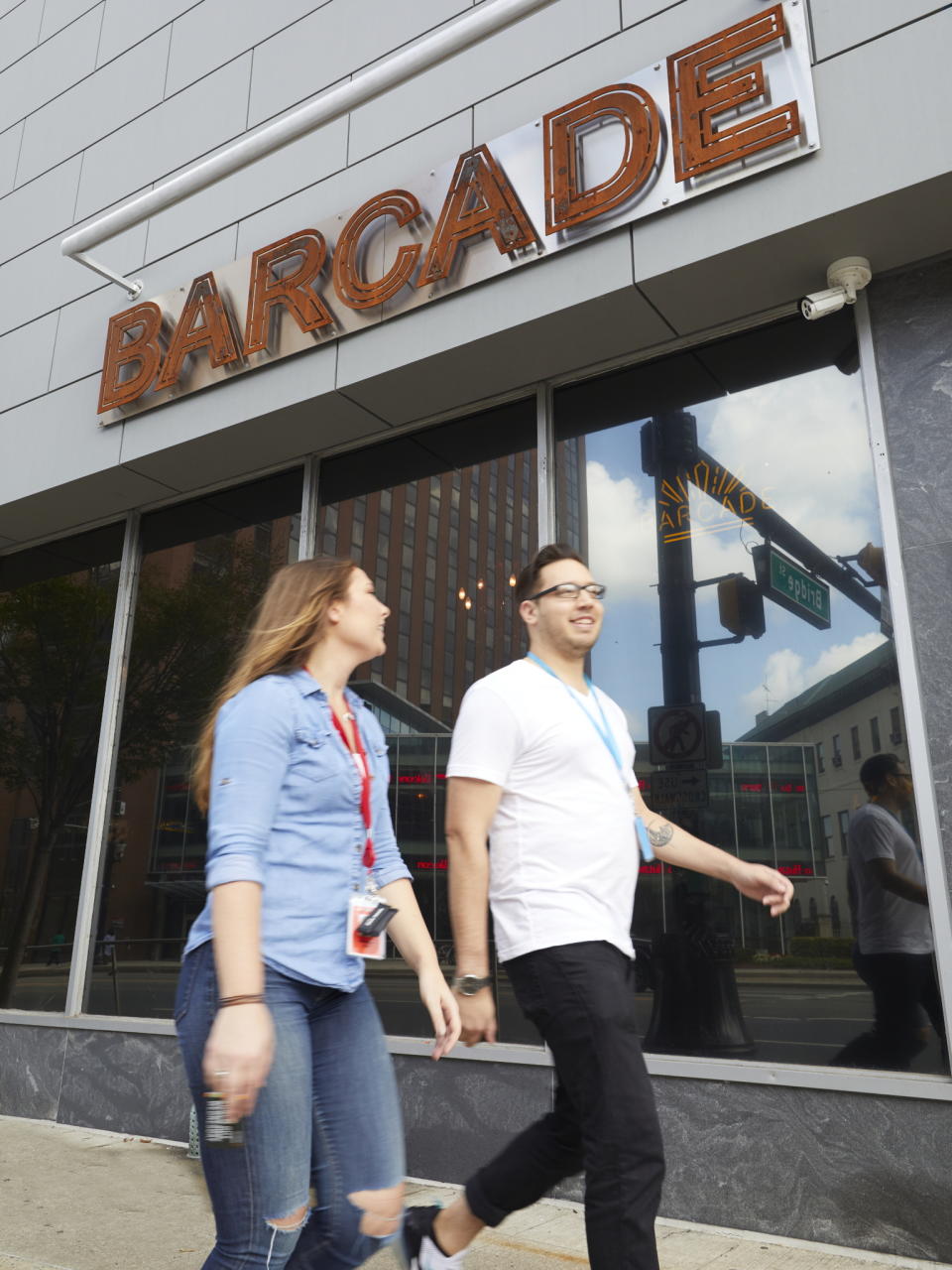Amazon's Audible treats employees to lunch to help spur Newark's revival

Big tech companies are often accused of not contributing to the local economy, so Amazon-owned Audible (AMZN) came up with a solution: Take its employees out to lunch.
Literally.
Two years ago, Newark, N.J.-based Audible rolled out its weekly “Lunch Out Wednesdays” program. The program encourages employees to get out of the office and grab lunch in the neighborhood, rather than take the free food provided by vendors inside the office.
At the start of each Wednesday, Audible’s workers reserve a lunch card, with a maximum value of $15. The voucher can be used at almost 20 participating food spots near the office.
Audible’s lunch program serves a dual purpose of helping workers take a break from the office, and gives a boost to Newark’s downtown recovery.
The company is moving to address the challenge faced by big companies in other cities, which often provide perks like free food to their employees. They are increasingly asked to be good corporate citizens—especially in areas where revitalization efforts are taking center stage.
It’s one of several ways Audible encourages its employees to contribute to the economy of New Jersey’s largest city, where the crime rate recently hit a record low.
“Like our program to pay employees $500 a month if they live in Newark, we subsidize meals for hundreds of employees each week to invest directly in creating vibrant street life,” founder and CEO Don Katz told Yahoo Finance in a statement.
“If other companies do the same, the exciting transformation we see in Newark – apartments, restaurants and cafes coming online by the week – will happen in double time,” he added.
Fending off backlash
Since Audible began the program, it’s grown from 100 card vouchers per week to 500. Audible declined to share the exact amount the program costs the company, but 500 cards per week suggests a total of at least $390,000 per year.
The move has been lauded by city officials, who say it’s helped contribute to a new energy downtown.
“The word is out,” said Aisha Glover, CEO of Newark Alliance. She told Yahoo Finance that the city’s other businesses know Wednesdays are Audible’s “Lunch Out” day.
“It’s addressing an issue that really exists whenever you have a corporation or institution in the city,” she said, adding that Newark is courting other major companies in the city to get on board with similar programs.

Big companies have faced considerable pressure to encourage local growth. In San Francisco, the local government has been working on legislation to ban cafeterias in company buildings.
Experts say the need for in-house cafeterias began in suburban areas, when food options were few. Also, some couldn’t handle the lunch rush near corporate campuses that employ thousands of workers.
That paved the way for the Silicon Valley strategy of having third-party vendors on rotation, which in turn led to in-house chefs and daily menus — an idea that grew in popularity thanks to Google — but led to drops in foot traffic at local businesses.
“I suspect (the criticisms are) more in downtowns that are just starting to revitalize, said Lance Freeman, an urban planning professor at Columbia University.
“Businesses may have relocated, but there wasn’t that much in the way of retail that catered to middle class professionals...so companies would then feel the need to open up a cafeteria that would serve their population,” Freeman said.
“It’s happening in places like Newark where downtowns are recently starting to bounce back,” he stated. Programs like Audible’s could serve as a blueprint for other companies looking to address the issue, he added.
James Hughes, a professor and former dean of the planning and public policy school at Rutgers University, said that lunch programs are an incentive, in more ways than one.
“Tech firms and knowledge-based industries choosing to move to locations like Newark really have a positive motivation to do good and to stimulate the city,” he said.
In-house food perks help large companies foster teamwork, since employees are in the work environment for longer and interacting with their peers.
But it is a significant operation for businesses, even one with deep pockets, to take on, Freeman said.
“I would imagine, in a perfect world, (companies) wouldn’t want to have to provide a cafeteria, because that is not their specialty,” he said.
—
Anjalee Khemlani is a reporter at Yahoo Finance. Follow her on Twitter: @AnjKhem
Read the latest financial and business news from Yahoo Finance
Follow Yahoo Finance on Twitter, Facebook, Instagram, Flipboard, SmartNews,LinkedIn, YouTube, and reddit.

 Yahoo Finance
Yahoo Finance 